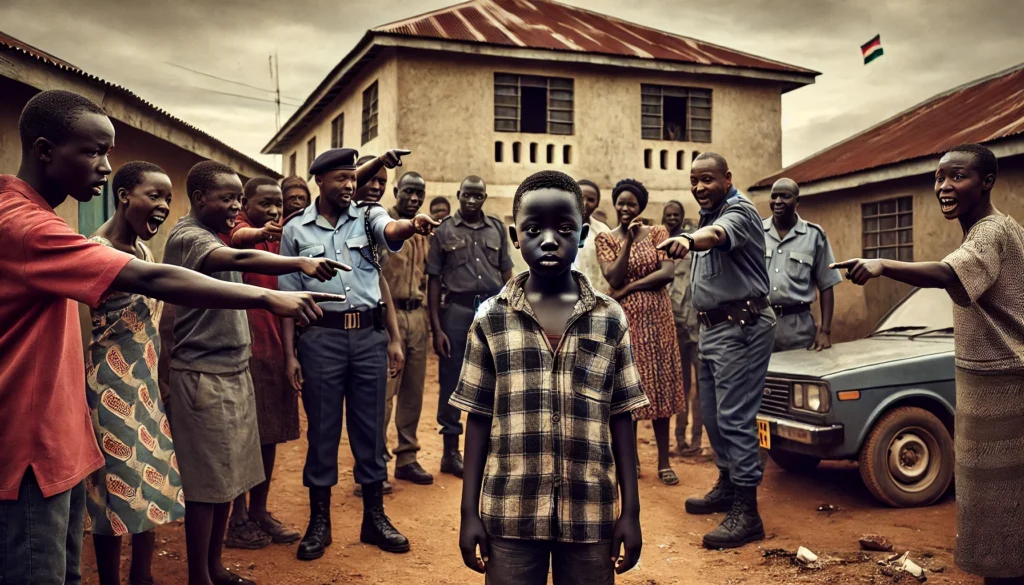Children who find themselves in conflict with the law face more than just the justice system, they also encounter deep-rooted unconscious biases. These biases – assumptions we make without even realizing, are often shaped by ethnicity, social class, and neighborhood. They influence how these children are treated, from their first interaction with law enforcement to how society views them long after their cases are closed and they are reintegrated into the community.
This blog stems from conversations we had with children in communities across Kisumu, exploring how unconscious bias affects those who come into contact or conflict with the law, the lasting impact on their lives, and what we as a society can do to break down these harmful judgments.
What Is Unconscious Bias?
Unconscious bias refers to the automatic, often unintentional judgments we make about others based on stereotypes. These biases shape how we treat people in our daily lives, and in the justice system, they can result in unfair treatment and discrimination.
In Kisumu, as in many other parts of Kenya, unconscious bias against children in conflict with the law is shaped by long-standing social divisions. For instance, children from certain neighborhoods, especially informal settlements or areas labeled as crime hotspots, are more likely to be viewed with suspicion. This can lead to harsher punishments, stigma, and reduced access to support for rehabilitation.
How Unconscious Bias Affects Children in Kisumu
Stigmatization Based on Background
Children from marginalized neighborhoods like Nyalenda, Manyatta, or Obunga are often judged based on where they live rather than who they are. This unconscious bias affects how law enforcement, court officials, and even the community perceive them. For instance, a child from these areas may be unfairly labeled as a “troublemaker” or “thief” simply because of where they come from.
One child shared that after being involved in a minor crime, they were constantly called a “thief” by others, even after making efforts to change. This kind of labeling reinforces negative stereotypes, making it harder for children to move past their mistakes.
Harsh Treatment and Profiling by Law Enforcement
Many children in Kisumu fear being unfairly targeted by law enforcement, simply because of where they live or the behaviors associated with their communities. Children accused of minor offenses like petty theft or skipping school often face much harsher treatment compared to others from wealthier areas.
For example, a child from an informal settlement may be presumed guilty, while a child from a more affluent neighborhood might be given the benefit of the doubt. These biases affect not only their arrest but also how their cases are handled.
Impact of Bias on Children’s Mental Health
The stress of being profiled, stigmatized, or unfairly treated takes a significant toll on children’s mental health. Some reported feeling overwhelmed during court proceedings, which are often lengthy and emotionally draining.
Children who are constantly labeled or verbally abused, being called “thieves” or other names, even after showing signs of change, experience emotional stress and isolation. This type of treatment can erode their self-esteem, making it even harder for them to believe in their potential for change.
Unconscious Bias as a Barrier to Rehabilitation
Kenya’s justice system is designed to rehabilitate young offenders, but unconscious bias sometimes prevent children from accessing the full benefits of rehabilitation.
Some children expect harsh punishment or forced labor when they enter the system and even believe their lives are over. However, with the right support, many can reform and lead productive lives. Sadly, unconscious bias too often stands in the way of these opportunities.
What can we do to address Unconscious Bias?
While unconscious bias is deeply ingrained, there are steps we can take to reduce its impact. Here’s how we can start addressing these biases:
- Train Law Enforcement and Legal Professionals
Law enforcement officials need training to recognize and address their own biases. Awareness programs can help ensure children are treated fairly, regardless of their background. This shift in focus, from where a child comes from to the specifics of their case, can lead to fairer outcomes.
- Train Law Enforcement and Legal Professionals
- Strengthen Rehabilitation Programs
Rehabilitation, not punishment, should be the heart of the justice system for young offenders. Programs that offer counseling, skills training, and community reintegration need to be made accessible to all children, so they have the opportunity to turn their lives around.
- Strengthen Rehabilitation Programs
- Raise Community Awareness
Communities play a vital role in supporting children as they rebuild their lives. Schools, religious institutions, and community organizations can help by educating the public about the effects of unconscious bias and promoting the importance of giving children second chances.
- Raise Community Awareness
- Support Mental Health Services
Unconscious bias places a heavy emotional burden on children, making mental health services critical. Regular counseling, emotional support, and mentorship can help children process their experiences and develop the resilience they need to reintegrate into society.
- Support Mental Health Services
Unconscious bias may be invisible, but its impact on children is all too real. When we let bias guide our judgments, we not only harm these children but also contribute to cycles of poverty, crime, and marginalization. To create a just and fair society, we must actively work to confront these biases, ensuring that every child is treated with dignity and compassion.
By addressing unconscious bias, we can open the doors to rehabilitation and give children the chance to lead better, more fulfilling lives.
Now is the time to challenge our assumptions and offer these young people the second chances they deserve.

